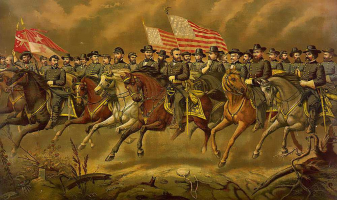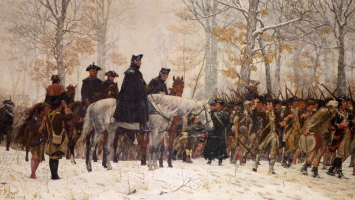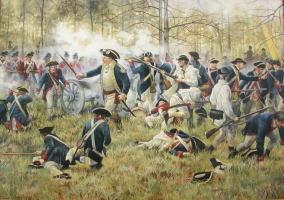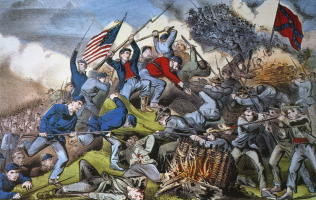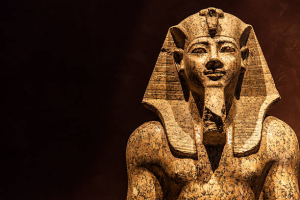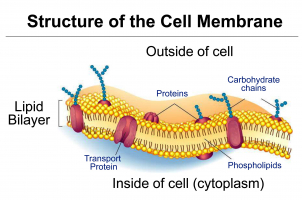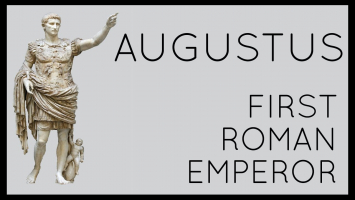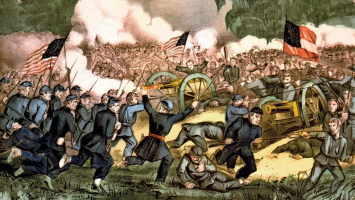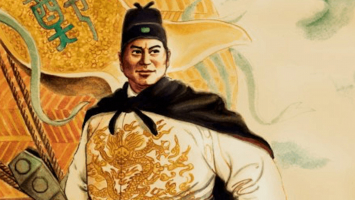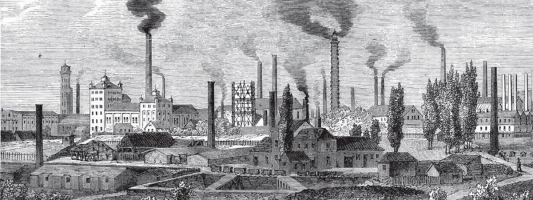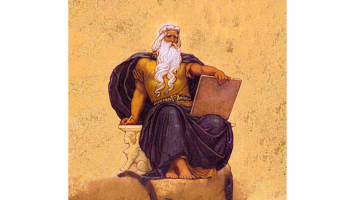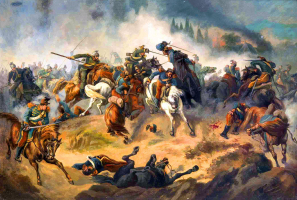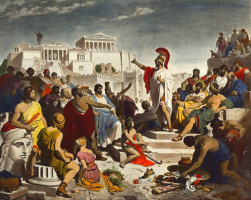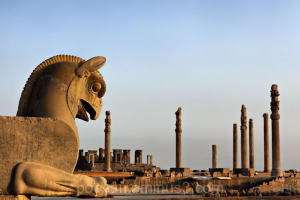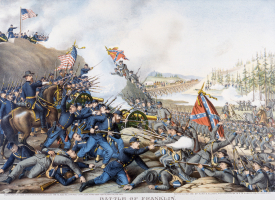Top 11 Facts About The Vicksburg Campaign
The Vicksburg campaign was a series of maneuvers and battles in the Western Theater of the American Civil War directed against Vicksburg, Mississippi, a ... read more...fortress city that dominated the last Confederate-controlled section of the Mississippi River. In this list, we have some of many interesting facts about this special event that you might not know.
-
Vicksburg was the last major Confederate stronghold on the Mississippi River; therefore, capturing it completed the second part of the Northern strategy, the "Anaconda Plan". When two major assaults against the Confederate fortifications, on May 19 and 22, were repulsed with heavy casualties, Grant decided to besiege the city beginning on May 25. After holding out for more than forty days, with their supplies nearly gone, the garrison surrendered on July 4. The successful ending of the Vicksburg campaign significantly degraded the ability of the Confederacy to maintain its war effort. This action, combined with the surrender of the down-river Port Hudson to Maj. Gen. Nathaniel P. Banks on July 9, yielded command of the Mississippi River to the Union forces, who would hold it for the rest of the conflict.
The Confederate surrender on July 4, 1863, is sometimes considered, when combined with Gen. Robert E. Lee's defeat at Gettysburg by Maj. Gen. George Meade the previous day, the turning point of the war. It cut off the Trans-Mississippi Department (containing the states of Arkansas, Texas and part of Louisiana) from the rest of the Confederate States, effectively splitting the Confederacy in two for the rest of the war. Lincoln called Vicksburg "the key to the war." For that reason, until this day, The Battle of Vicksburg (May 18 – July 4, 1863) is considered the final major military action in the Vicksburg campaign of the American Civil War.
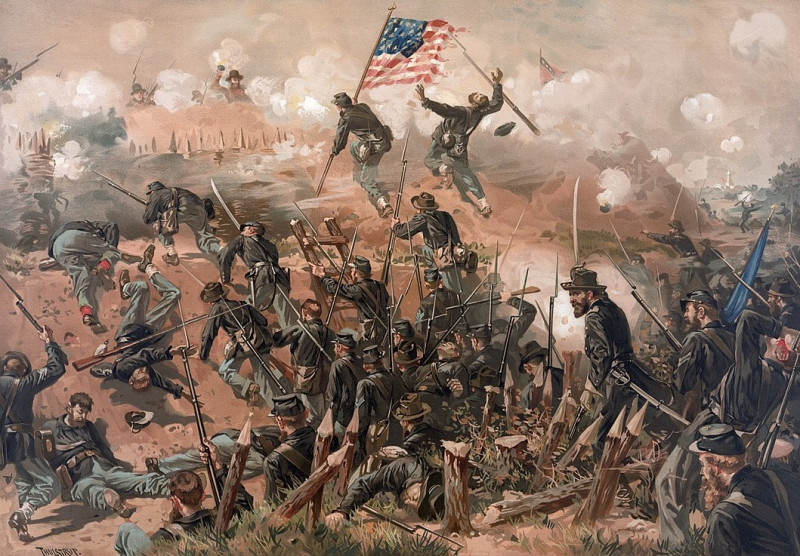
Photo: Wikipedia Video: Smithsonian Channel -
Champion Hill, Mississippi was an important battlefield in the Vicksburg campaign, as the decisive battle of the campaign was fought here. During his scavenging around the countryside in search of Grant's army, Pemberton got to know that a part of his rival's supply line was weakly fortified and easily accessible to his Confederate force. On the morning of May 15, 1863, Pemberton's force slowly advances toward the target. However, recent storms have ruined a bridge over Bakers Creek, necessitating a time-consuming detour for Pemberton to cross the stream. The Confederate force is poorly dispersed along winding roads when darkness falls on the 15th, with Bakers Creek to its rear.
In the meantime, Grant has acted swiftly. His three corps are moving west toward Vicksburg on three parallel axes. Pemberton's attenuated line lies directly across the path of the Federal juggernaut. At 7:30 am on May 16th, the head of Grant's southernmost column runs into Pemberton's right flank. At the same time, his two remaining columns are threatening the Confederate left flank near Champion Hill. The two sides vie for control of the hill for several bloody hours before the Federals' superiority in numbers compel the Confederates to withdraw. Only the skill of his junior officers and the bravery of his men save Pemberton from complete disaster, buying time for engineers to build a bridge over Bakers creek and allowing the bulk of Pemberton's army to escape intact. But the Confederates will never again have the chance to defeat the Union troops in the open field. Retreat to the trenches at Vicksburg is Pemberton's only option.
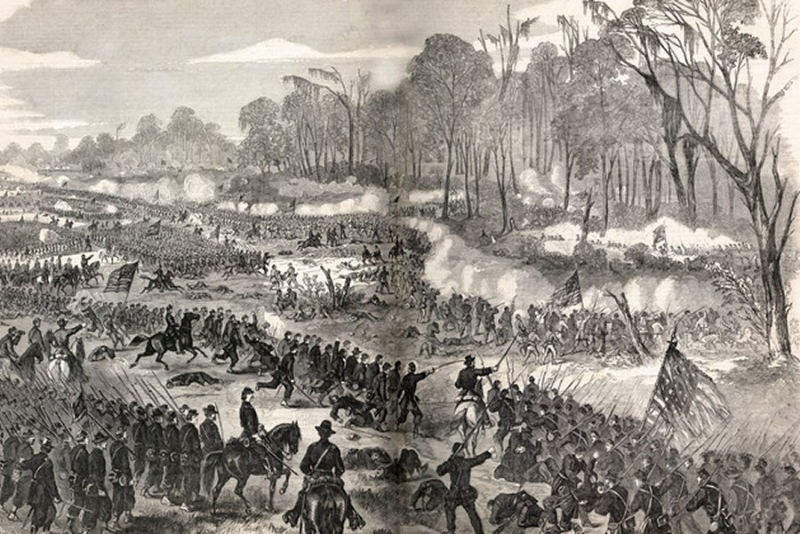
The Battle of Champion Hill - History on the Net Video: VicksburgNPS -
African American soldiers also had a big role in the Battle of Vicksburg of the Vicksburg campaign. The Union did not initially recruit them, however, a lot of black soldiers ended up joining the army in different ways and dedicated their lives to the campaign. Escaped slaves were already employed in some units for menial work. Others joined by being recruited, but only in 1863 that more African American soldiers were recruited into the army. The Union recruited more during that year, and the tally reached up to 180,000 colored soldiers. However, all of them had to work under white supervisors and didn't have the right to act on their own.
Despite having little to no rights in the Army, African American soldiers still dedicated their lives to the Army and contributed greatly to the overall outcome of the Vicksburg campaign, which is the victory of the Union. The Confederates attacked the Unions on 7th June to cut off the supply line to Maj. Gen. Grant. The black soldiers, with their inferior weapons, fought off the attack using gunboats. Around 652 African American soldiers lost their lives but managed to cause 152 causalities to the Confederates. This diminished the Confederate’s chances of winning.
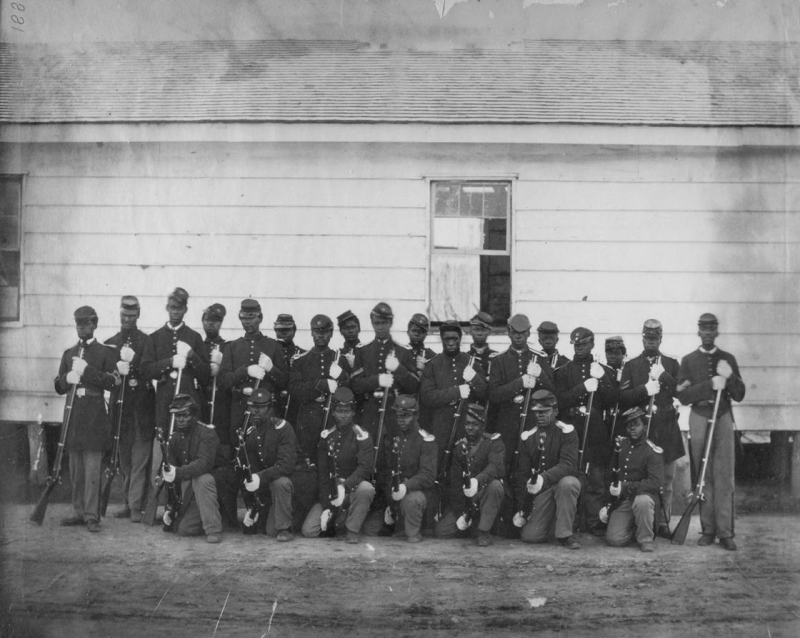
African American soldiers in the Vicksburg campaign - www.battlefields.org 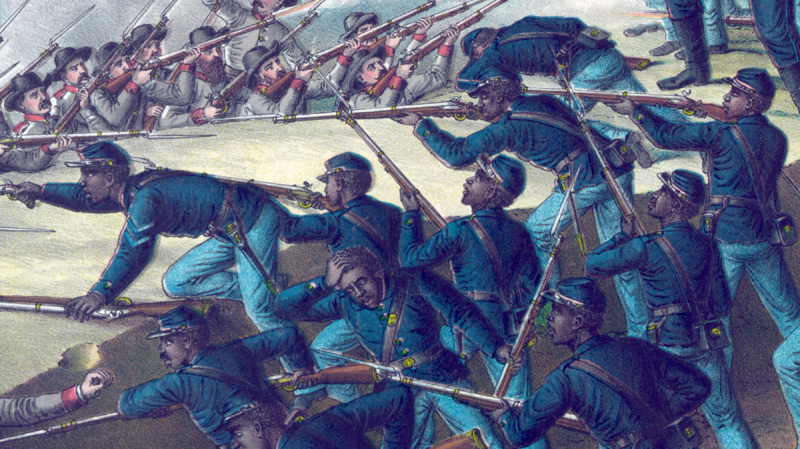
African American soldiers fighting in the Vicksburg campaign - www.history.com -
In 1863, Union advances from the Memphis in the North and New Orleans in the South had constricted Confederate control of the Mississippi River to a small section stretching from Port Hudson, Louisiana to the fortified city of Vicksburg, Mississippi. At the time, President Abraham Lincoln and Confederate President Jefferson Davis both saw Vicksburg as “the key” to the Confederacy, making the Vicksburg campaign an important event for both.
Early in the Civil War, President Abraham Lincoln, gesturing to a map of the region, declared to his military advisors that "Vicksburg is the key" and that the failure to capture this city meant "hog and hominy without limit, fresh troops from all the states of the far South [for the Confederacy]." For not only would the capture of Vicksburg benefit the commercial interests and military operations of the Union, but Vicksburg was also a vital logistical link to the resource-rich Trans-Mississippi. And it was via Vicksburg that important war material and arms smuggled through Mexican ports could defy the Federal blockade and sustain the military needs of the South. Confederate President Jefferson Davis, whose plantation home was just south of Vicksburg, clearly recognized why the city was worth defending. For Vicksburg, in his words, was "the nailhead that held the South’s two halves together."
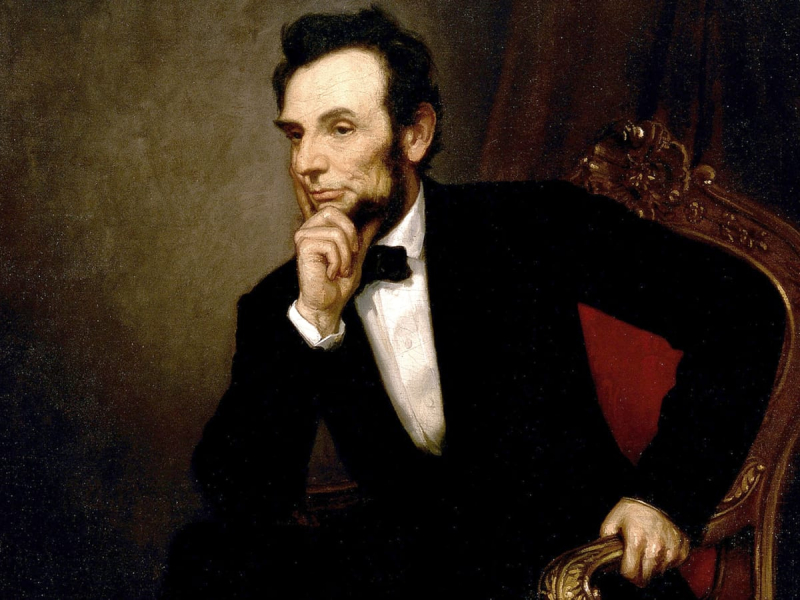
Abraham Lincoln - www.history.com 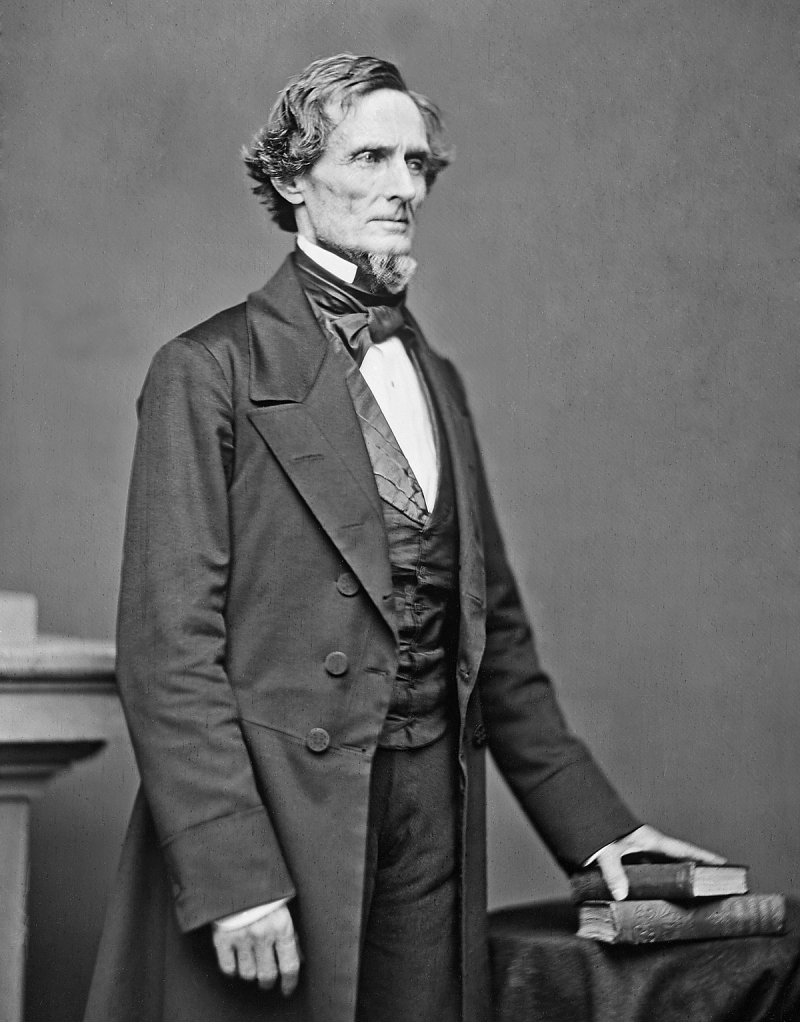
Jefferson Davis - Wikipedia -
As Vicksburg was “the key” to the Confederacy, during the Vicksburg campaign, many Confederate leaders were divided on strategy. Gen. John C. Pemberton, commanding the Confederate Army of Mississippi at Vicksburg, was in a tough bind. On the one hand, his immediate superior, Joe Johnston, placed little stock in defending Vicksburg and instead preferred to have Pemberton's force link up with his own. Together, Johnston reasoned, the Confederate armies could defeat Grant's troops in the open field before shifting their forces to other imperiled points of the Confederacy. On the other hand, Jefferson Davis, the Confederate president, consistently directed Pemberton to protect Vicksburg at all hazards.
The Philadelphia-born Pemberton was keenly aware that abandoning Vicksburg might be viewed as an act of treason. He'd faced similar criticism in 1862 when he advocated the withdrawal from Charleston—much to the chagrin of South Carolina's governor. What's more, a directive from the President of the Confederacy was not something he could simply ignore. Nevertheless, Pemberton attempted to mollify his commanding officer. He moved his troops out of the Vicksburg trenches in the direction of Grant's army hoping to engage—and possibly defeat—the Yankees outside of Vicksburg, and thereby protect the city. Pemberton's movements, however, were slow and he made little effort to coordinate with Johnston. This half-hearted attempt to please both his military and civilian superiors placed Pemberton's army in a precarious position that the Federals would soon exploit.
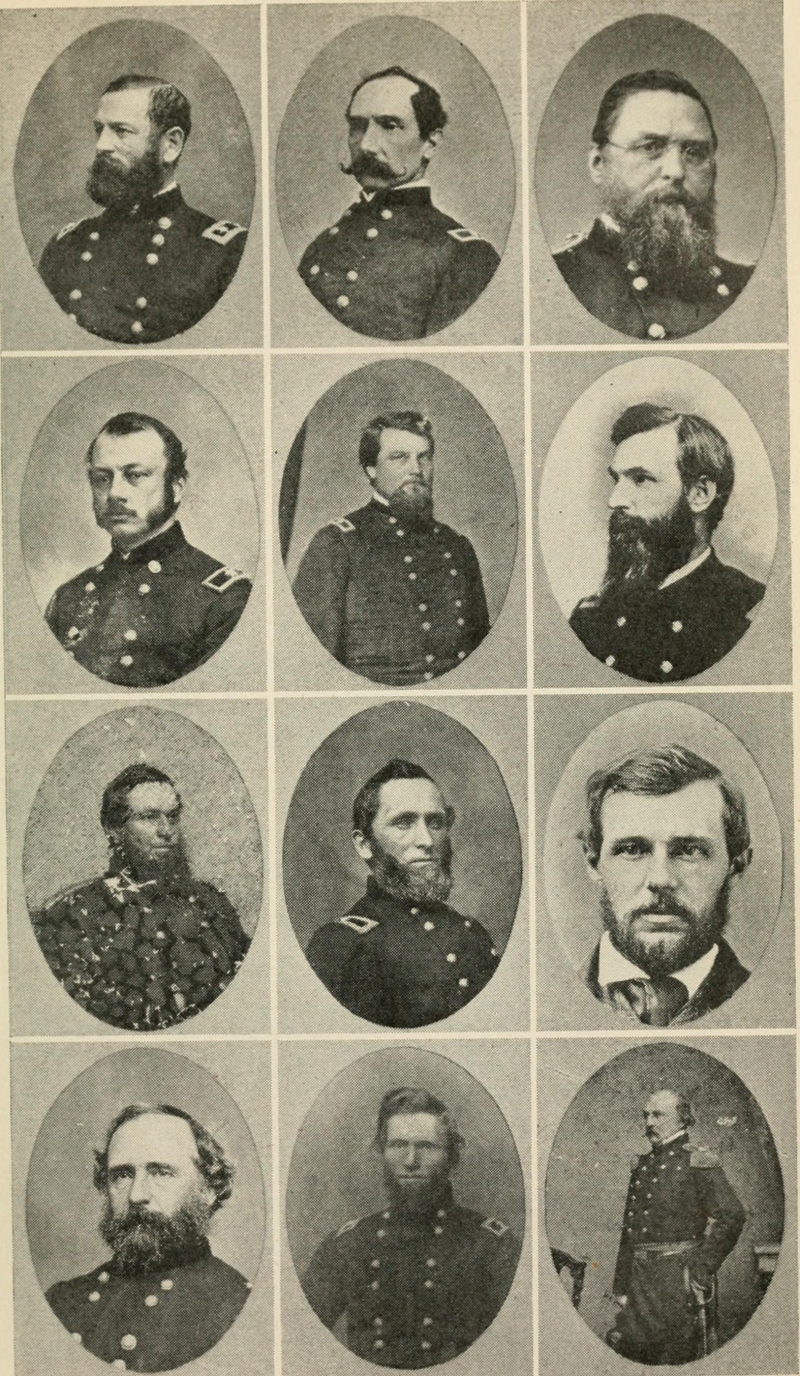
Confederate leaders in the Vicksburg campaign - Wikimedia Commons 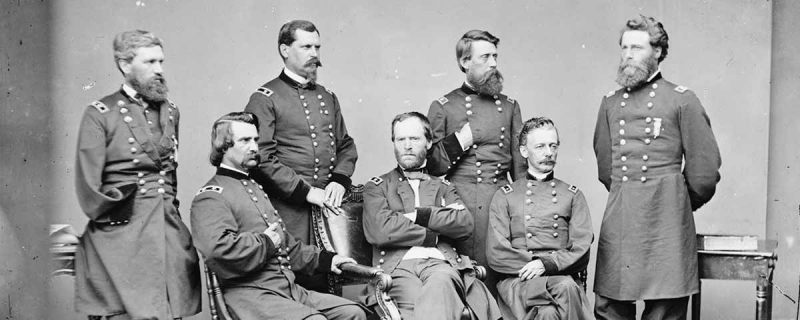
Confederate leaders in the Vicksburg campaign - HistoryNet -
Ulysses S. Grant (April 27, 1822 – July 23, 1885) was an American military officer and politician who served as the 18th president of the United States from 1869 to 1877. As Commanding General, he led the Union Army to victory in the American Civil War in 1865 and thereafter briefly served as Secretary of War. The Confederate army marched into Vicksburg during the Vicksburg campaign on May 17, 1863, with Grant’s Federals hot on their heels. Grant ordered a small-scale assault on three axes, the Graveyard Road, the Jackson Road, and the Southern Railroad on May 19. Despite planting their colors on the Rebel works, the Yankee attackers were turned back with a substantial loss.
On May 22, Grant tried again. After a massive bombardment, each of his three corps commanders: James McPherson, John McClernand, and Sherman was ordered to attack their respective sectors. Sherman's Fifteenth Corps' assault on the right, McPherson’s men in the center, and McClernand’s men on the left. McClernand sent back to Grant for additional help. Grant, however, was slow to respond to his subordinate's call for aid. McPherson sends a division to McClernand, but it is too little too late. A combination of determined defense and command confusion led to another morale-sapping defeat for the Union forces. All told, Grant lost more than 4,000 men in the May offensive. The Confederates lost less than 600. Although the Union army had won a string of victories in the open field, the Vicksburg defenses proved impervious to hasty attacks. The May offensive convinced Grant to lay siege to the city and starve the Confederates out.
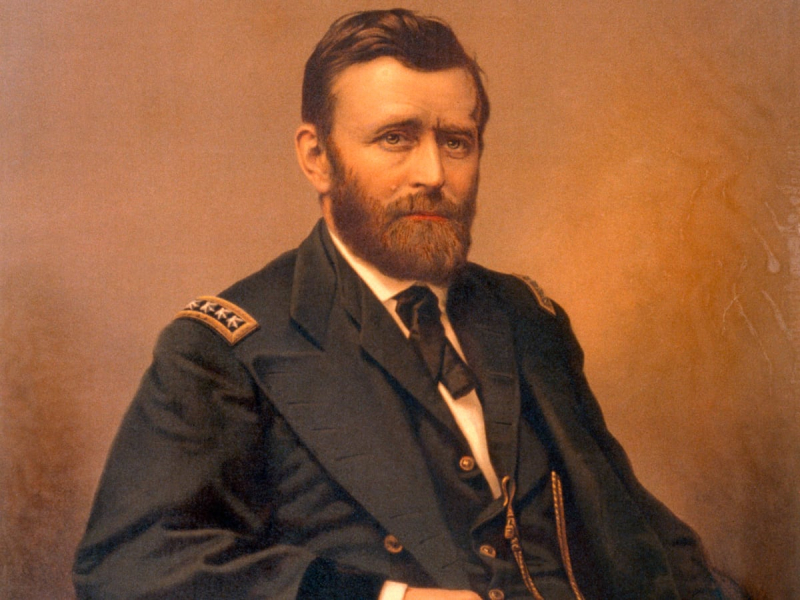
Ulysses S. Grant - www.history.com 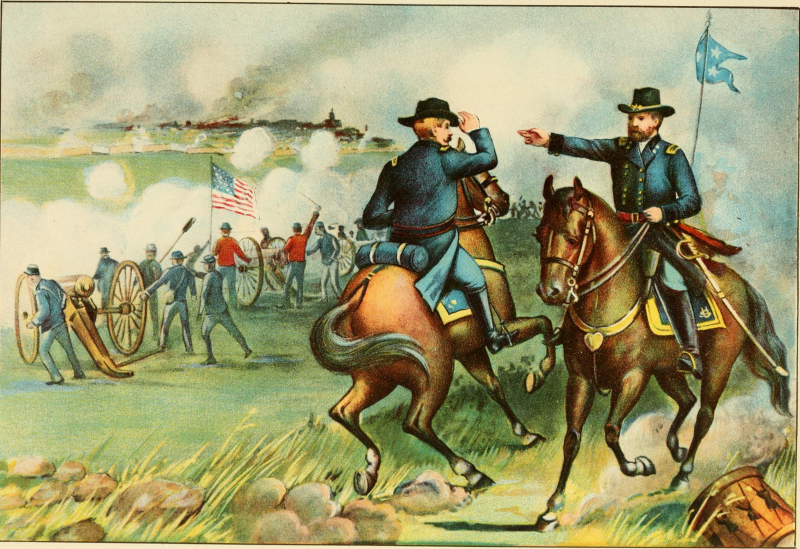
Photo: Wikimedia Commons -
After bloody repulses in 1862, Gen. Ulysses S. Grant determines to push his army south through Louisiana, using the Mississippi River to supply his troops. He plans to land his army below Vicksburg, taking this Confederate bastion from the South. On April 16 and 22, 1863, Admiral David D. Porter's fleet successfully runs past the Vicksburg batteries, giving Grant the naval power necessary to cross the Mississippi, which he does on April 29, 1863. The following day, the Federals establish a strong lodgment east of the river after the Battle of Port Gibson.
On the east bank, Grant's moving troops flank the Confederate garrison at Grand Gulf, forcing the Rebels to abandon the river fortress and make a beeline for Vicksburg. Grant realizes that the terrain before him is well-suited for defense; his opponent will be able to contest nearly every foot of the ground. Furthermore, Grant's front will be constricted by the Mississippi River to his right and the Big Black River to his left, preventing him from using his superiority in numbers to overwhelm the Confederates. In the meantime, the Southern Railroad will provide the Rebels with supplies, and reinforcements. On May 6, Grant sends McPherson and the Fifteenth Corps under Gen. William T. Sherman toward the Mississippi State capitol of Jackson. After a brief battle, Johnston seemingly abandons his plans to relieve Pemberton and withdraws, never again to play an active role in the Vicksburg campaign. With the Southern Railroad now squarely in Union hands, and the threat to his rear neutralized, Grant can turn his sights on Vicksburg.
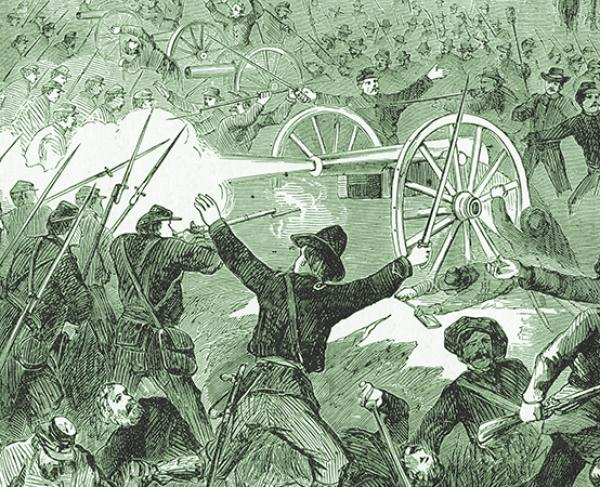
Battle of Port Gibson - www.battlefields.org 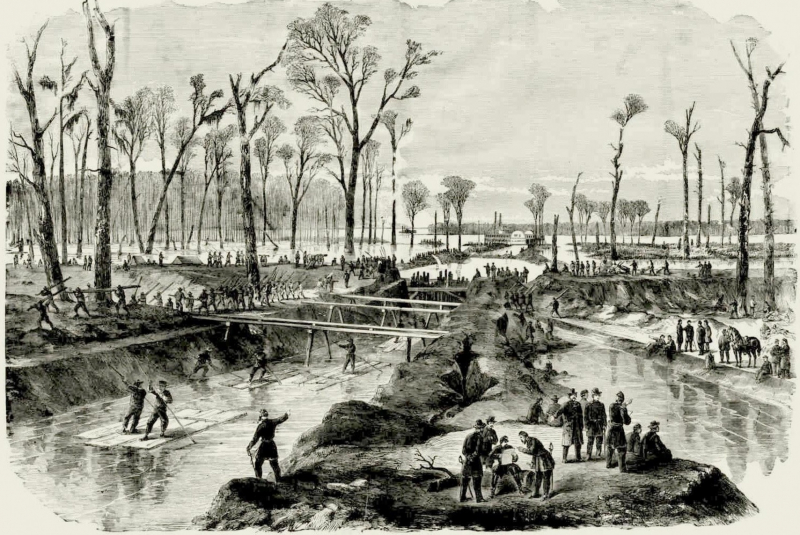
American Army working by the Mississippi River - National Park Service -
When David Dixon Porter was appointed to lead the Mississippi River Squadron, the naval detachment co-operating with Grant near Vicksburg, he was thrust into a command that far exceeded any he had held before, both in tonnage of ships and in importance of victory. Porter was a man of courage and skill, but he came to Vicksburg having made many enemies through his tendency to scorn superiors and play favorites among his inferiors. Nevertheless, the close working relationship that developed between Porter, Grant, and Sherman during the Vicksburg Campaign set the standard for joint operations in the West.
Porter’s conduct of his fleet during the Vicksburg campaign was unimpeachable. After months of failure trying to move infantry on the Memphis-Vicksburg overland line, it was Porter’s daring runs past the Vicksburg batteries on April 16 and 22, 1863 that moved enough river transports below the city for Grant to launch the decisive operation from the south. Porter's sailors were the first to occupy the abandoned Confederate base at Grand Gulf and, as Grant's army neared Vicksburg in mid-May, Porter set up a forward supply depot that allowed Grant to keep his troops supplied as they settled into final phases of the Vicksburg campaign. After the infantry invested the city in May, Porter's gunboats provided additional firepower to the Federal forces, lobbing roughly 22,000 shells into the Confederate fortifications over the course of the 39-day siege - an average of 564 per day. After the Confederate surrender, Porter, Grant, and Sherman shared a bottle of wine on the U.S.S. Blackhawk.
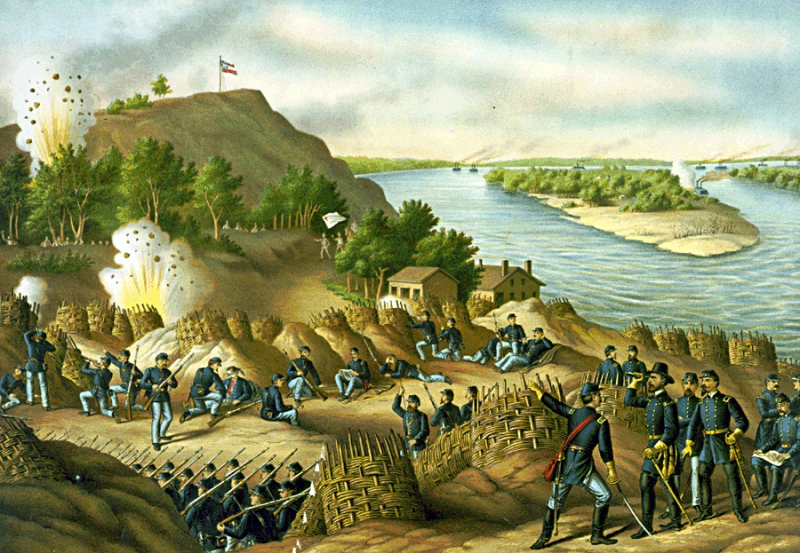
Battle occurred next to the Mississippi River - History on the Net 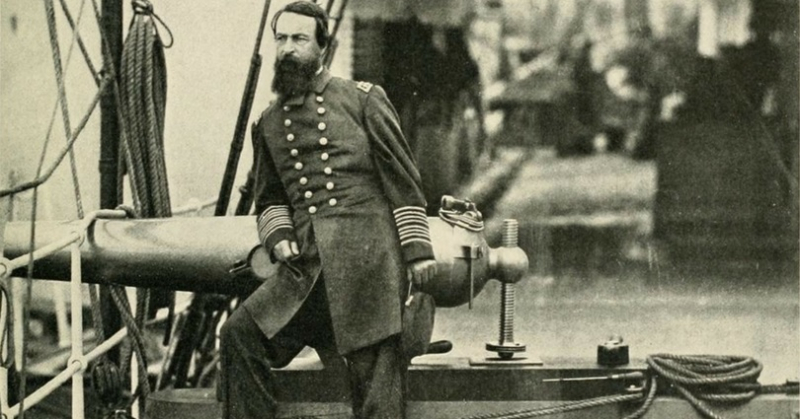
David Dixon Porter - www.battlefields.org -
After the capture of Vicksburg happened in the Vicksburg Campaign, General Ulysses S. Grant tried to send a message to current President Abraham Lincoln. However, In the few days it took for Grant’s message announcing the capture of Vicksburg to reach Abraham Lincoln, the President had also received word about Port Hudson. The siege of Port Hudson, Louisiana, (May 22 – July 9, 1863) was the final engagement to recapture the Mississippi River in the American Civil War of the Union. After knowing that Port Hudson, the only other Confederate stronghold left on the Mississippi, had also fallen. “The Father of Waters once again goes unvexed to the sea,” he proclaimed.
With no length of the Mississippi River now safe from Union power, the Confederacy was unable to send supplies or communications across its breadth. Louisiana, Texas, and Arkansas were cut off from the rest of the rebellious nation. This was doubly damaging, as the Texas-Mexico border was a favorite route of secessionist suppliers and the possibility of French intervention across the border was precluded by the nigh-impassable boundary of a Union-held Mississippi River. The fall of Vicksburg came just one day after the Confederate defeat at the Battle of Gettysburg, prompting many to point to early July 1863 as the turning point of the Civil War.
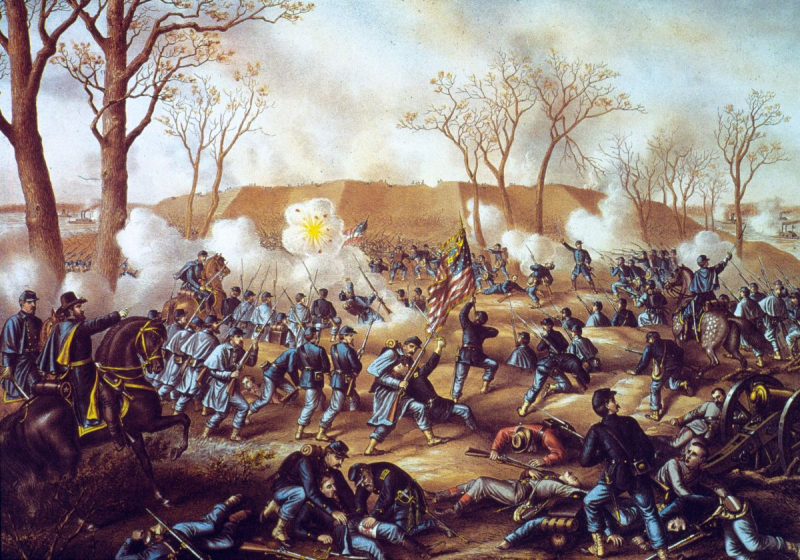
Battle in the Vicksburg Campaign - Biography (Bio.) 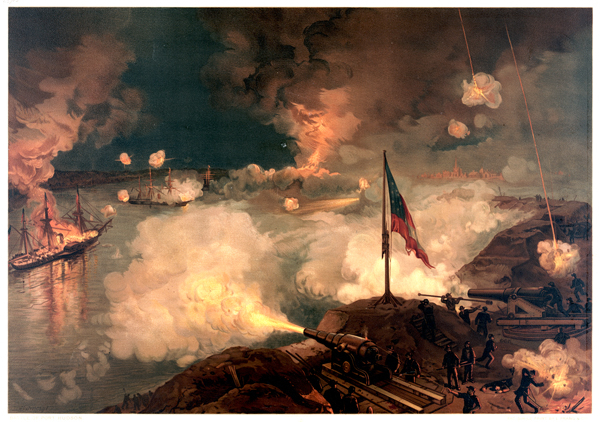
The siege of Port Hudson - 64 Parishes -
Grant was the undisputed victor of the Vicksburg campaign. He was rewarded for his victory with a promotion to major general in the regular army, effective on July 4, 1863. However, he also received a special and "unusual" letter from the president. The letter expressed admiration and gratitude from Lincoln to Grant. Below is what was written in the letter:
"My dear General
I do not remember that you and I ever met personally. I write this now as a grateful acknowledgment for the almost inestimable service you have done for the country. I wish to say a word further. When you first reached the vicinity of Vicksburg, I thought you should do, what you finally did—march the troops across the neck, run the batteries with the transports, and thus go below; and I never had any faith, except a general hope that you knew better than I, that the Yazoo Pass expedition, and the like, could succeed. When you got below and took Port Gibson, Grand Gulf, and vicinity, I thought you should go down the river and join Gen. Banks; and when you turned Northward East of the Big Black, I feared it was a mistake. I now wish to make the personal acknowledgment that you were right, and I was wrong.
Yours very truly,
A. Lincoln"
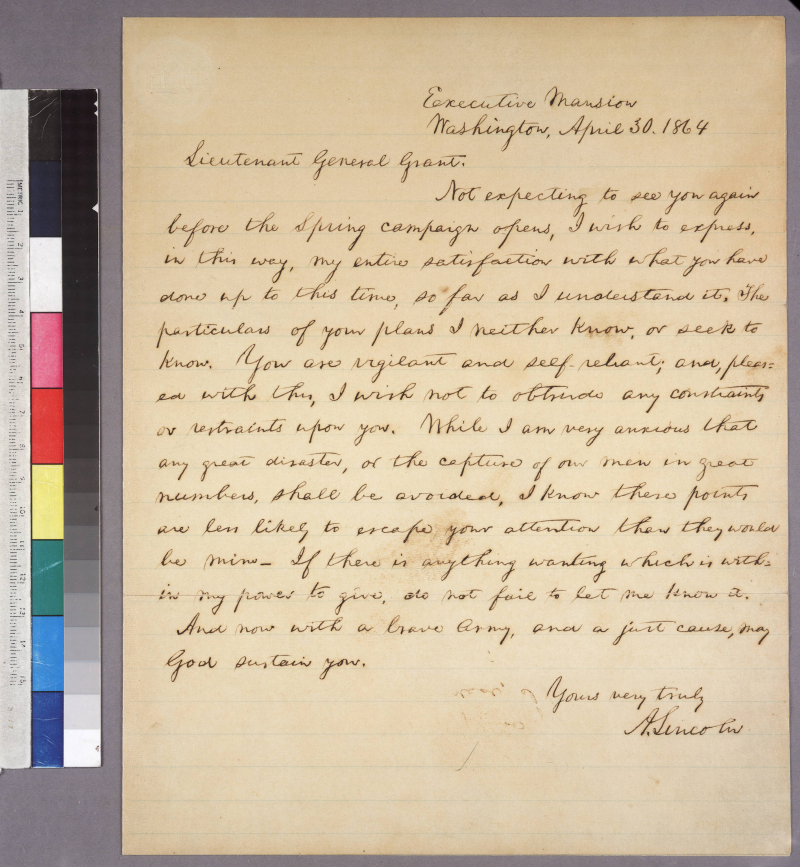
One of the letters Abraham Lincoln sent Ulysses S. Grant during the Vicksburg campaign - hdl.huntington.org Video: losassoma1 -
The battlefield land around Vicksburg, once was the bloody battlefield in the Vicksburg campaign, is now being preserved and maintained by the National Park Service. This area is now called The Vicksburg National Military Park, and is located in Vicksburg (Mississippi) and Delta (Louisiana). The Vicksburg National Military Park is spread across 1800 acres. It has 1325 historical monuments and the Vicksburg National Cemetery. Around 17000 Union soldiers rest in this cemetery. It has trenches, tour roads, trails, cannons, earthworks, restored gunboats, etc., and is open to the public. This is one of the most important battlefields in the American Civil War, therefore, many people from all around the war come to this park every year to study about the War and American history.
The American Battlefield Trust also takes part in preserving and maintaining the the battlefield land around Vicksburg. In 1899, Confederate veteran Stephen Dill Lee supervised the establishment of the 1,800 acre Vicksburg National Military Park, which was then transferred to the National Park Service in 1933. The park was the site of the raising of the ironclad USS Cairo in the 1960s, one of the landmark achievements of American Civil War preservation. Despite its significance, the other battlefields of the Vicksburg campaign, were largely unpreserved until recent years. The American Battlefield Trust has saved hundreds of acres on the battlefields of Raymond, Champion Hill, Big Black River Bridge, and Port Gibson.
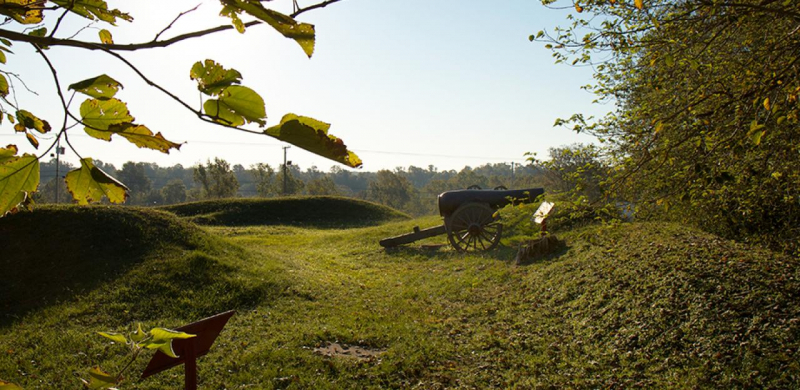
Photo: www.battlefields.org Video: OUR NEW FRONT PORCH













